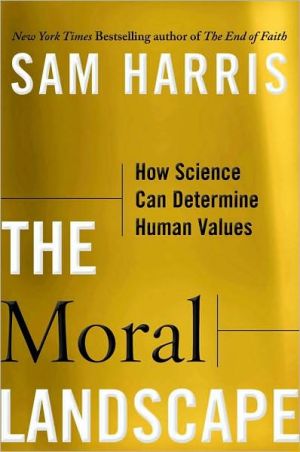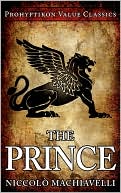Christianity and the Social Crisis in the 21st Century: The Classic that Woke Up the Church
In the wake of the success of God's Politics, comes an anniversary edition of Walter Rauschenbusch's Christianity and the Social Crisis, a book which outsold every other religious volume for three years and which has become a classic and mainstay for any Christian seriously interested in social justice. \ \ PBS has named Rauschenbusch one of the most influential American religious leaders in the last 100 years, and Christianity Today named this book one of the top books of the century that...
Search in google:
In the wake of the success of God's Politics, comes an anniversary edition of Walter Rauschenbusch's Christianity and the Social Crisis, a book which outsold every other religious volume for three years and which has become a classic and mainstay for any Christian seriously interested in social justice. PBS has named Rauschenbusch one of the most influential American religious leaders in the last 100 years, and Christianity Today named this book one of the top books of the century that have shaped contemporary religious thought. So it seems fitting on the 100th anniversary of the publication of Christianity and the Social Crisis that Rauschenbush's great-grandson should bring this classic back into print, adding a response to each chapter by a well-known contemporary author such as Jim Wallis, Tony Camplo, Cornel West, Richard Rorty, Stanley Hauerwas, and others. Between 1886 and 1897, he was pastor of the Second German Baptist Church in the "Hell's Kitchen" area of New York City, an area of extreme poverty. As he witnessed massive economic insecurity, he began to believe that Christianity must address the physical as well as the spiritual needs of humankind. Rauschenbusch saw it as his duty as a minister and student of Christ to act with love by trying to improve social conditions. This, in fact, inspired leaders such as Reinhold and Richard Niebuhr, Rev. Martin Luther King, Jr., Mahatma Gandhi and Bishop Desmond Tutu. "Christianity is in its nature revolutionary" Rauschenbusch wrote, and the significance of his work is that it spoke of society's responsibility to the poor and downtrodden. In the present atmosphere of heightened debate and even antagonism between political and religious viewpoints Christianity and the Social Crisis will again be a book that will provoke intense responses by people on every side. As the disparity between the rich and the poor in America continues to widen in the 21st century, the book's explication of the radical social message of Jesus is as applicable today as it was 100 years ago. The New York Times Book Review In a 100th-anniversary edition, Paul Raushenbush, the author’s great-grandson, has reprinted the text with essays by Cornel West, the Rev. Jim Wallis and others to prove that one can be a dedicated Christian and a social reformer at the same time.
Christianity and the Social Crisis in the 21st Century\ The Classic That Woke Up the Church \ Chapter One\ The Historical Roots of Christianity\ The Hebrew Prophets\ It seems a long start to approach the most modern problems by talking of men who lived before Lycurgus and Solon gave laws to Sparta and Athens. What light can we get on the troubles of the great capitalistic republic of the West from men who tended sheep in Judea or meddled in the petty politics of the Semitic tribes?\ History is never antiquated, because humanity is always fundamentally the same. It is always hungry for bread, sweaty with labor, struggling to wrest from nature and hostile men enough to feed its children. The welfare of the mass is always at odds with the selfish force of the strong. The exodus of the Roman plebeians and the Pennsylvania coal strike, the agrarian agitation of the Gracchi and the rising of the Russian peasants—it is all the same tragic human life. And in all history it would be hard to find any chapter so profoundly instructive, and dignified by such sublime passion and ability, as that in which the prophets took the leading part.\ Moreover, the life and thought of the Old Testament prophets are more to us than classical illustrations and sidelights. They are an integral part of the thought-life of Christianity. From the beginning the Christian Church appropriated the Bible of Israel as its own book and thereby made the history of Israel part of the history of Christendom. That history lives in the heart of the Christian nations with a very real spiritual force. The average American knows more about David than about KingArthur, and more about the exodus from Egypt than about the emigration of the Puritans. Throughout the Christian centuries the historical material embodied in the Old Testament has been regarded as not merely instructive, but as authoritative. The social ideas drawn from it have been powerful factors in all attempts of Christianity to influence social and political life. Insofar as men have attempted to use the Old Testament as a code of model laws and institutions and have applied these to modern conditions, regardless of the historical connections, these attempts have left a trail of blunder and disaster. Insofar as they have caught the spirit that burned in the hearts of the prophets and breathed in gentle humanity through the Mosaic Law, the influence of the Old Testament has been one of the great permanent forces making for democracy and social justice. However our views of the Bible may change, every religious man will continue to recognize that to the elect minds of the Jewish people God gave so vivid a consciousness of the divine will that, in its main tendencies at least, their life and thought carries a permanent authority for all who wish to know the higher right of God. Their writings are like channel-buoys anchored by God, and we shall do well to heed them now that the roar of an angry surf is in our ears.\ We shall confine this brief study of the Old Testament to the prophets, because they are the beating heart of the Old Testament. Modern study has shown that they were the real makers of the unique religious life of Israel. If all that proceeded from them, directly or indirectly, were eliminated from the Old Testament, there would be little left to appeal to the moral and religious judgment of the modern world. Moreover, a comprehension of the essential purpose and spirit of the prophets is necessary for a comprehension of the purpose and spirit of Jesus and of genuine Christianity. In Jesus and the primitive Church the prophetic spirit rose from the dead. To the ceremonial aspects of Jewish religion Jesus was either indifferent or hostile; the thought of the prophets was the spiritual food that he assimilated in his own process of growth. With them he linked his points of view, the convictions which he regarded as axiomatic. Their spirit was to him what the soil and climate of a country are to its flora. The real meaning of his life and the real direction of his purposes can be understood only in that historical connection.\ Thus a study of the prophets is not only an interesting part in the history of social movements but it is indispensable for any full comprehension of the social influence exerted by historical Christianity, and for any true comprehension of the mind of Jesus Christ.\ For the purposes of this book it is not necessary to follow the work of the prophets in their historical sequence. We shall simply try to lay bare those large and permanent characteristics which are common to that remarkable series of men and which bear on the question in hand.\ Religion Ethical and Therefore Social\ The fundamental conviction of the prophets, which distinguished them from the ordinary religious life of their day, was the conviction that God demands righteousness and demands nothing but righteousness.\ Primitive religions consisted mainly in the worship of the powers of nature. Each tribe worshiped its local tribal god, who dwelt in some gloomy ravine or on some mountaintop and sent rain and fertility to his people when he was pleased, or drought and pestilence on crops and herds when he was offended. Like every other despot, the god had to be kept in good humor by valuable gifts and prayers, offered in the right places, in the right manner, and by the duly qualified persons. If the sacrifices were neglected, the god was sure to be angry and then had to be propitiated by redoubled offerings, incantations, and dances. There was always some connection between religion and morality. It was always understood that the tribal god had instituted the tribal customs and was displeased with any violation of them. But the essential thing in religion was not morality, but the ceremonial method of placating the god, securing his gifts, and ascertaining his wishes. He might even be pleased best by immoral actions, by the immolation of human victims, by the sacrifice of woman's chastity, or by the burning of the firstborn.\ Christianity and the Social Crisis in the 21st Century\ The Classic That Woke Up the Church. Copyright © by Walter Rauschenbusch. Reprinted by permission of HarperCollins Publishers, Inc. All rights reserved. Available now wherever books are sold.
\ Library JournalIn this reintroduction of Baptist minister Rauschenbusch's classic 1907 social gospel treatise, Christianity and the Social Crisis, several contributors offer chapter-by-chapter commentary, among them pastor and evangelist Tony Campolo, author and scholar Cornel West, and philosopher Richard Rorty. As with a colorful sports broadcast, they offer up their particular viewpoints concerning Rauschenbusch's now-famous and still controversial ideas, e.g., his disbelief in original sin and his preaching of a social gospel. Many of the societal concerns and questions of 1907, e.g., his alarm over inner-city poverty, societal injustice, crime, and ineffectual government, are just as relevant today. The only seeming difference is in the voices of the individuals addressing these issues. It is interesting to read what each has to say about the hopes and dreams of Rauschenbusch, one of the original social gospel architects. Certainly not all are in agreement with his (or one another's) theology, eschatology, Christology, anthropology, and soteriology, but all acknowledge the need to attend to and address societal ills. Recommended for larger specialized university collections.\ —Wesley A. Mills\ \ \ \ \ \ The New York Times Book ReviewIn a 100th-anniversary edition, Paul Raushenbush, the author’s great-grandson, has reprinted the text with essays by Cornel West, the Rev. Jim Wallis and others to prove that one can be a dedicated Christian and a social reformer at the same time.\ \ \ Christian Century“Skillfully fashioned and perfectly timed, [Rauschenbusch’s] book was a supercharger for a movement . . . and set a new standard for political theology. Rightly viewed from the beginning as the greatest statement of the social gospel movement.”\ \ \ \ \ CommonwealRepublication in this form is a forceful intervention in contemporary debates in American religion and politics.\ \








